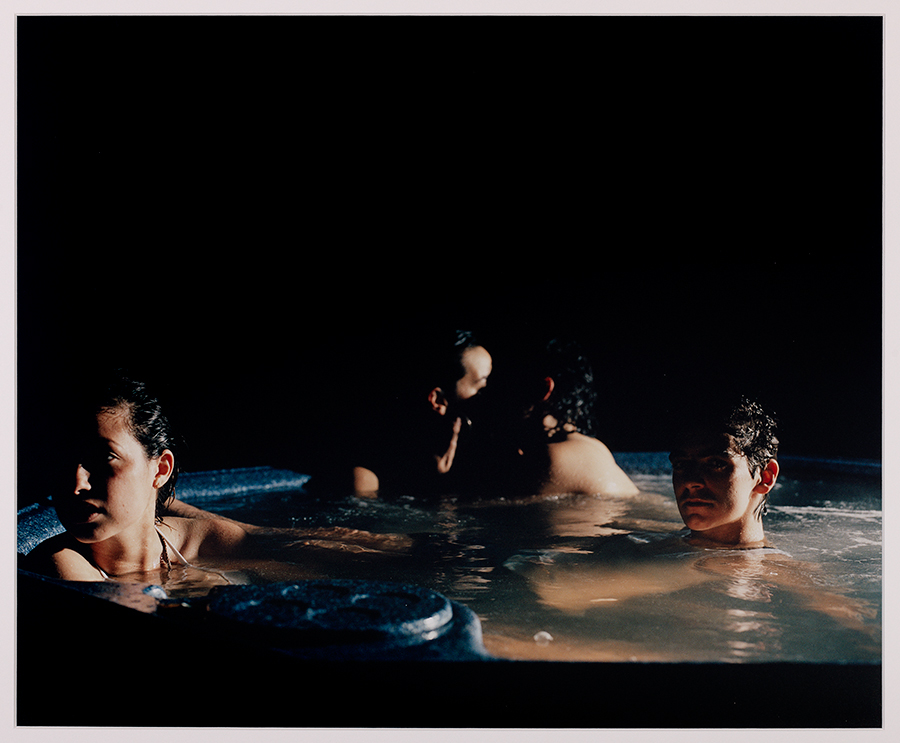
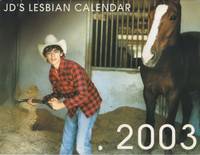
In 2003, JD Sampson, member of feminist pop-punk band Le Tigre, teamed up with friends Kathleen “K8” Hardy and Los Angeles photographer Cass Bird to create “JD’s Lesbian Calendar.” Featuring images of JD and K8, the calendar celebrated the pair’s identity as butch lesbians through showing them in masculine attire, working around a farm.
After the original calendar project’s conclusion, JD returned to life in New York. There, the death of exclusively lesbian spaces began to eat away at her. While there was a solid community of gay men in the city, there were few spaces where lesbians were given priority, and even fewer places where the messy, unphotogenic, masculine edges of butch subculture could be celebrated in full. Wanting to breach out of this bubble, JD decided to reprise the earlier project with Bird. Setting out in a rainbow-painted RV, with 5 other butch lesbians, the group documented a 10-day trip, with the goal of finding a utopia somewhere along the journey. The culmination of this product was the 2006 calendar titled “JD’s Lesbian Utopia.”
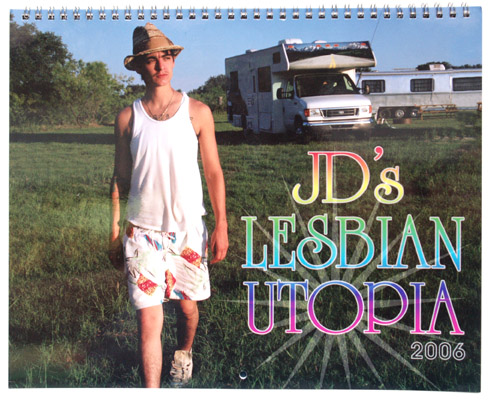
“I had this anthropological need to experience something other than New York, especially the gay community. We went out and tried to look for this utopia.” JD Sampson, 2008.
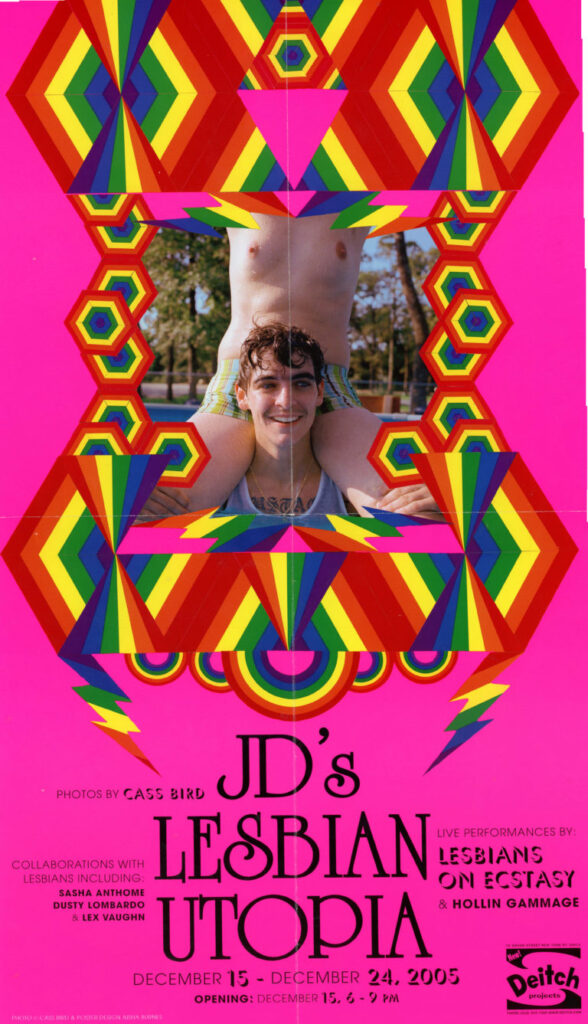
The trip resulted in nearly two thousand photographs and twenty-six hours of video footage, capturing the messy, joyful, chaotic road trip from Georgia to Texas. This body of work was pared down for a solo exhibition at the Deitch Projects gallery, which organized and published the calendar.
The project was a sharp difference from the way butch lesbians were pictured at the time. The calendar was an exercise in visibility, not only of their excluded identities, but also of the joy and vibrancy which accompanied their open expression. The calendar’s creation gave implicit permission to other butch lesbians to exist fully, at a time when gay communities were fighting a bitter battle for public and political respect. The RV crew was able to craft a real, temporary utopia through a commitment to building “intentional community” along their journey, both among themselves and within the places they encountered.
These images are brightly lit, featuring enthusiastic characters. At times, the figures are blurred, either with their motion or the camera’s. They are alive, laughing, and unobscured.
“It’s saying, ‘I’m going to live positively,’ and it’s really important to me that these little things get us somewhere. For every [negative] decision that’s been made about gay marriage, there are more people saying ‘Yes.’ We’re moving somewhere, and that’s really positive.” JD, 2008.
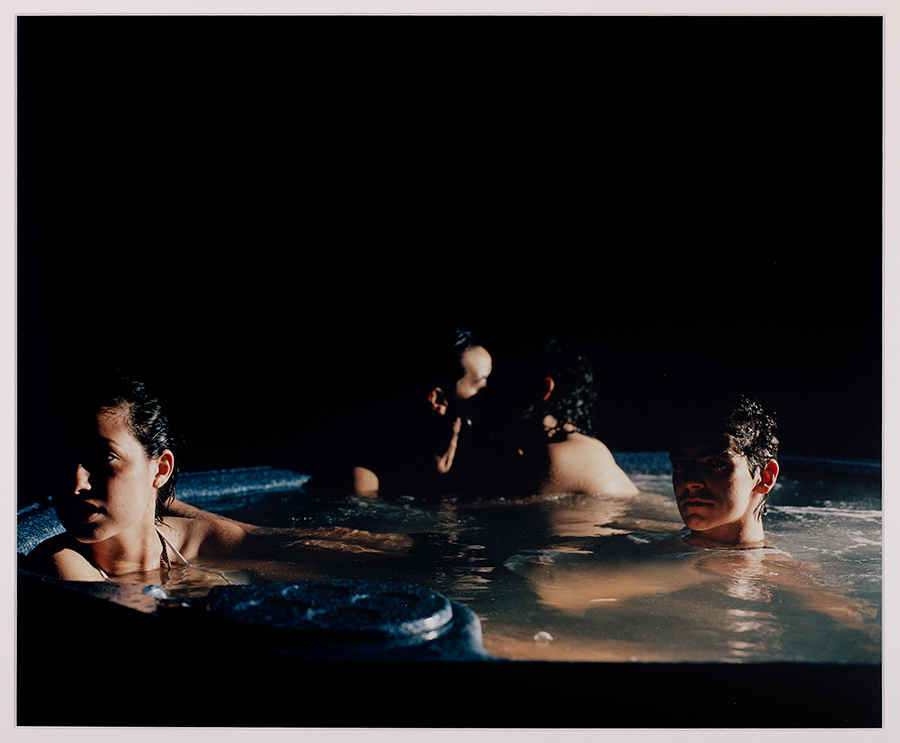
In 2005, gay marriage was only legal in Massachussetts, although a few states hosted embroiled legal battles over individual unions. That year, 11 states moved to constitutionally ban same-sex unions by defining marriage as exclusively between men and women.
In the context of this political and social backlash, then, this project is a defiant gesture. The choice to create a “utopia” can also be seen as a rejection of the existing world, and a marker of its imperfections and inequities. By choosing to make these images into a calendar, the group gave these moments of connection and expression lasting power, stretching them out as a promise for the coming year.
In another context, the kiss in Untitled might have been taboo. The shadows covering the two faces might have been censorship, the choice one born of fear or disgust, even though the kiss itself is a normal, youthful thing. But in this raucous, vibrant project, the choice to obscure the faces where they meet– to let them fade into the image’s background– is particularly striking. It’s a moment of quiet in an otherwise loud declaration.
In this pool, these two are not alone. Even the the pointed view of the camera, and our gaze as an audience, destroys a sense that these two are hidden.
Instead, the choice Bird makes to let these two be obscured is one that protects their intimacy. In this moment, it is enough that we can see their conjoined outline. The love, the lust, the attraction, is just for them to share.